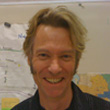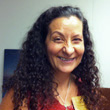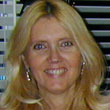About Us
 Kevin Beals
Kevin Beals
Kevin Beals is a curriculum specialist, professional developer, educator, and director of the BEETLES (Better Environmental Education, Teaching, Learning, Expertise & Sharing) project. His specialty is generating and implementing creative ideas to make learning engaging and pedagogically sound. He is author of a number of Seeds of Science/Roots of Reading curricula and student books, GEMS curriculum guides, science home activity kits, GEMS Curriculum Sequences, and Afterschool Kidzscience kits. He has taught science since 1981, led teacher’s workshops since 1990, and was the primary designer and teacher of the University of California, Berkeley course, Communicating Science. He has also written and recorded two albums of science education songs with the band The Bungee Jumpin’ Cows.
- BEETLES (Better Environmental Education, Teaching, Learning, Expertise & Sharing)
- Seeds of Science/Roots of Reading®
- GEMS curriculum guides
- The Bungee Jumpin’ Cows

Lynn Barakos
Lynn Barakos is a professional learning specialist and senior staff member at UC Berkeley's Lawrence Hall of Science who co-taught the award-winning Communicating Science course at UC Berkeley for twelve years. She has led and designed site-based and district-wide professional learning programs at LHS since 1996. She has also taught and developed chemistry programs for children from pre-school to high school, developed and led extensive teacher education programs in science and inquiry, and consulted with teachers and districts about standards-based, instructional improvement for science for the Lawrence Hall of Science. She co-authored Assessment-Centered Teaching: A Reflective Practice (2008) that documents district-wide implementation of assessment-centered teaching approaches with teachers. She is currently one of the lead developers for the BEETLES professional learning program and leading the BaySci Teacher Leadership Academy for participating K-5 Bay Area districts.

Catherine Halversen
Catherine Halversen serves as Director and PI of several NSF-funded projects at UC Berkeley’s Lawrence Hall of Science, including Communicating Ocean Sciences Informal Education Network. This national network of informal science education institutions partnered with their local universities offers the Communicating Ocean Sciences college courses at their university, and provides regional professional learning opportunities for informal educators through Reflecting on Practice. She serves as director for Promoting Climate Literacy, an NSF-funded project that developed the Communicating Climate Science college course, and also directs the Redefining the College Lecture: Engaging Undergraduates in Discussions in STEM Courses - a professional learning program for STEM faculty. She is Co-Director of MARE (Marine Activities, Resources & Education) program and has written numerous instructional materials for K-8 classrooms, most recently including the NOAA-funded Ocean Sciences Sequences for grades 6-8: The Ocean–Atmosphere Connection and Climate Change. She also served as Co-PI of the NSF-funded Centers for Ocean Sciences Education Excellence (COSEE) CA.
A Brief History of the Course
Out of a desire to create a science methods course that merged theory and practice in ways that supported teacher learning, in 1995 Kevin Beals and Laura Lowell of the Lawrence Hall of Science Chemistry Education department, developed and taught a course for the DTE (Developmental Teacher Education Program) undergraduate program at UC Berkeley. Around the same time, Angelica Stacy, PhD, of the UC Berkeley College of Chemistry had been experimenting with effective ways of teaching chemistry to undergraduate students and was also faculty advisor to a club organized by chemistry majors to volunteer to teach chemistry in local elementary school classrooms.
Beginning in 1997, Kevin Beals and Dr. Stacy teamed up, along with Jennifer Claesgens of the Lawrence Hall of Science Chemistry Education department, and received a grant from the Camille & Henry Dreyfus Foundation to further develop sessions from the DTE course and offer them as an undergraduate course entitled Communicating Chemistry. In Communicating Chemistry, chemistry majors were presented with instruction on how to teach, and also experienced teaching chemistry to elementary students in local public schools. Through supplemental funding from the National Science Foundation in 2000, a trial test version was produced by a development team including Kevin Beals, Angelica Stacy, Lynn Barakos (Lawrence Hall of Science Professional Development), Jacqueline Barber (Director of GEMS: Great Explorations in Math and Science), Lincoln Bergman (GEMS principal Editor), Carolyn Willard (GEMS Center Director), Eileen Lewis PhD (UC Berkeley science faculty), and Rob Bornick, PhD (UC Berkeley science faculty). The course was nationally disseminated in 2002 and feedback from those using the course in pre-service, inservice and outreach programs was incorporated into subsequent revisions.
Now known as Communicating Science, and including physics and astronomy majors, Communicating Science has been taught and refined since Spring 2000 by the primary authors of the web version of the course, Kevin Beals and Lynn Barakos. The course has generated much interest as a model for developing teaching skills within the context of a particular content area, and as a way to introduce undergraduate and graduate students in the sciences to educational approaches and career options. Beginning in 2004, this successful course was greatly expanded to include other scientific disciplines and partnerships with faculty in other science departments. A team led by Catherine Halversen of MARE (Marine Activities, Resources and Education) began offering Communicating Ocean Sciences (COS) at UC Berkeley in 2004. In 2005 John Erickson with Bruce Birkett and Greg Schultz adapted Communicating Science for UC Berkeley’s Cal Teach program. Catherine Halversen and Lynn Tran co-led a team that began offering Communicating Ocean Sciences to Informal Audiences (COSIA) in 2007. Greatly expanding the audience and reach of the course through grants from the National Science Foundation Ocean Sciences Division and Informal Science Education programs, Catherine Halversen and team have spread COS and COSIA to more than 20 universities nationwide.Written versions of sessions from COS and COSIA have also influenced refinements of the original Communicating Science course.
Additionally, we’d like to acknowledge the contributions of Bruce Birkett, Gibor Basri, Roger Falcone of UC Berkeley, Ellen Granger and Todd Bevis from Florida State University. We’d also like to thank Elizabeth Stage, Director of the Lawrence Hall of Science, and Craig Strang, Associate Director at LHS, for supporting our work on the course and valuing its contribution to science education and outreach to students.
For more information about the course, please contact Lynn Barakos, lbarakos@berkeley.edu. We’d also love to hear about your experiences teaching the sessions and would appreciate any feedback that would help us to make it better.
